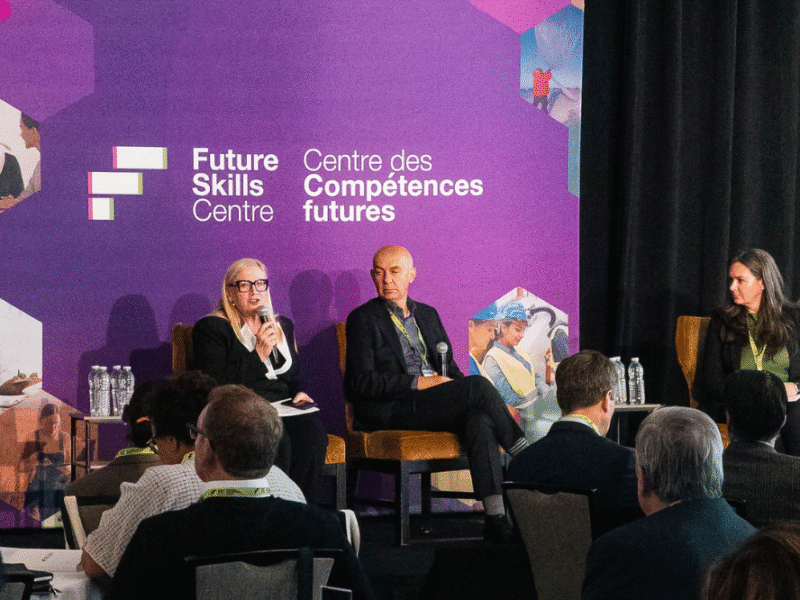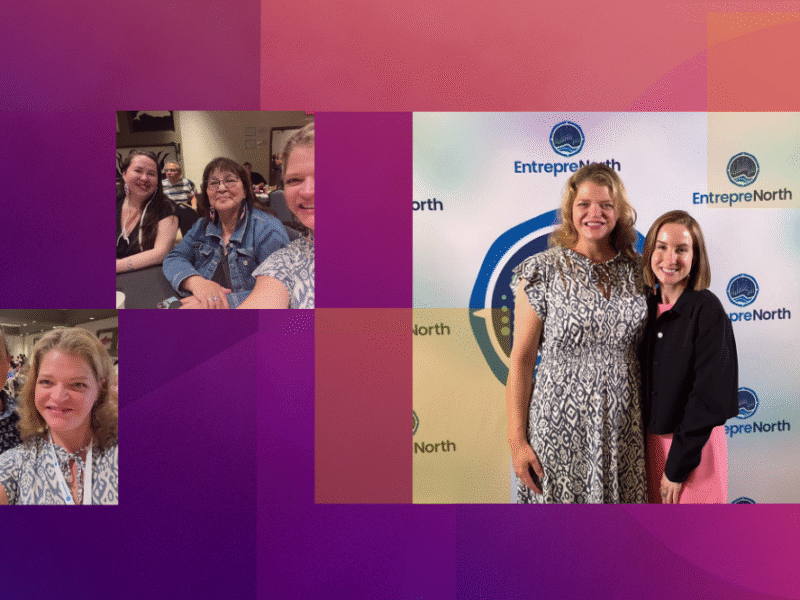Building a Strong and Inclusive Workforce: Neurodiversity Research in Action

Canada’s labour market is evolving, and critical skills gaps are making it harder for businesses to find the talent they need. At the same time, neurodivergent Canadians — a highly capable yet underrepresented talent pool — face barriers to employment.
The Future Skills Centre (FSC) is leading efforts to change this by equipping employers, educators, and policymakers with research-driven strategies to advance neuroinclusion in the labour market. Identifying barriers and fostering an inclusive workforce is key to addressing labour shortages and strengthening Canada’s economy.
Neurodiversity Research: A Blueprint for Workforce Inclusion
Since 2021, FSC, in collaboration with the Conference Board of Canada, has been conducting national research at the intersection of neurodiversity, higher education, and employment. This research focuses on three key areas:
- Building neuroinclusive workplaces: Investigating how hiring practices, workplace culture, and retention strategies can better support neurodivergent workers.
- Creating neuroinclusive policies in higher education: Examining ways to improve accessibility and support systems for neurodivergent students.
- Charting neuroinclusive pathways to self-employment: Exploring strategies to expand entrepreneurial opportunities and resources for neurodivergent Canadians.
Each study provides actionable strategies to drive meaningful workforce inclusion.
Building Neuroinclusive Workplaces: Unlocking Talent in Every Industry
Persistent labour shortages call for innovative hiring and retention strategies and changes to workplace culture. The FSC study, Breaking Down Barriers: Improving the Workplace Experience for Neurodivergent Canadians, outlines how businesses can adapt hiring, onboarding, and workplace environments to attract and retain neurodivergent talent.
Key recommendations include:
- Expand recruitment strategies through skills-based hiring and alternative interview formats.
- Enhance the accessibility of workplace accommodations, such as flexible work arrangements and clear communication practices.
- Foster neuroinclusive cultures where all employees can benefit from transparent and supportive workplace policies.
By implementing these strategies, businesses can tap into highly skilled talent while improving productivity and innovation across industries.
Neuroinclusive Policies in Higher Education: Strengthening the Talent Pipeline
Workforce inclusion starts long before employment. The FSC study, Neuroinclusive Policies and Practices in Higher Education, highlights systemic barriers in post-secondary education and provides solutions to better support neurodivergent students in acquiring the skills and credentials they need for meaningful careers.
Key recommendations include:
- Integrate accessibility into EDI frameworks and policies, ensuring the learning, social, and communication needs of neurodivergent students are explicitly addressed.
- Expand universal design in education, allowing for flexible learning formats, accessible materials, and targeted supports for executive function and sensory challenges.
- Reduce barriers to disclosure, which will improve access to accommodations and combat stigma.
By embedding neuroinclusive practices in classrooms, student services, and accessibility offices, higher education institutions can better prepare neurodivergent graduates to meet workforce needs.
Creating Neuroinclusive Pathways to Self-Employment: Unlocking Entrepreneurial Potential
Traditional employment is not the only opportunity to enhance the neuroinclusivity of the Canadian labour force. FSC is leading a new study, Creating Inclusive Pathways to Self-Employment, that explores how entrepreneurship can serve as a viable and empowering career path for neurodivergent Canadians.
Many neurodivergent individuals possess strengths well-suited to entrepreneurship, such as creative problem-solving and innovative thinking. However, systemic barriers—including limited access to funding and entrepreneurial skill development—often prevent neurodivergent entrepreneurs from thriving.
This research will provide policy-driven recommendations to:
- Improve access to business development support that is accessible and geared toward neurodivergent entrepreneurs.
- Develop targeted skills training for neurodivergent entrepreneurs.
- Expand mentorship opportunities that support self-employment pathways.
By fostering inclusive entrepreneurial opportunities, Canada can unlock untapped economic potential, drive innovation, and create new employment pathways for neurodivergent individuals.
Workforce Inclusion as an Economic Imperative
Canada’s long-term economic growth depends on maximizing the potential of all workers. FSC’s neurodiversity research delivers a strategic roadmap for workforce inclusion, equipping businesses, educators, and policymakers with the tools they need to drive meaningful change.
With the right policies and practices, Canada can lead the way in building a labour force that works for everyone, ensuring long-term prosperity and innovation.
The views, thoughts and opinions expressed here are the author’s own and do not necessarily reflect the viewpoint, official policy or position of the Future Skills Centre or any of its staff members or consortium partners.




